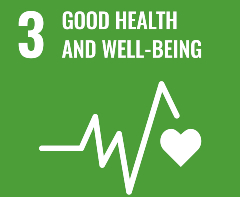.jpg)
Helping society recover from COVID-19 through testing
With the spotlight on COVID-19 testing, it’s more important than ever that tests are accurate and correct. Faulty tests could have a massive impact on society, especially during the occurrence of a second wave of the virus.
Through the COVID-19 National Diagnostic Research and Evaluation Platform (CONDOR), researchers are taking a holistic approach to prioritising coronavirus testing used by the National Health Service (NHS).
Impact of COVID-19 on modern medicine and fighting disease
The emergence of the current coronavirus pandemic has posed obvious medical challenges as practitioners are faced with a disease that had no initial treatment. Rick Body is a Professor of Emergency Medicine at The University of Manchester, Consultant at Manchester University NHS Foundation Trust (MFT) and Director of DiTA – the Manchester-based NHS Diagnostics and Technology Accelerator. He’s been working with researchers from the University and MFT, as well as the Department of Health and Social Care and industry partners on this challenge.
“As we ramp up to try and address the needs of the pandemic, we’ve got to be innovative and look at new technologies, but it usually takes years to develop these technologies and new tests,” Professor Body says.
“We’ve got to look at ways of getting these key things into practice, quickly and safely, after collating thorough evidence and this challenges clinicians to strongly consider what evidence is actually needed in order to make a change.”
Establishing CONDOR
“Manchester leads this platform but it’s a collaboration with the University of Leeds, Newcastle University, University of Oxford, Imperial College London and the University of Nottingham - a network of people with fantastic expertise in evaluation In vitro diagnostics,” explains Professor Body.
Funded by the National Institute for Health Research (NIHR), UK Research and Innovation (UKRI), and Asthma UK and British Lung Foundation, CONDOR launched in June 2020.
“CONDOR utilises existing infrastructure in those locations, where there are NIHR MedTech and In vitro Diagnostic Cognitives (MIC), set up before the pandemic to catalyse the generation of evidence for new tests.
“In Manchester, we had the idea that with all of the new tests emerging as a result of COVID- 19 – you had to have a systematic approach to determine which tests were good enough to use in practice. That decision led us to write a protocol for a programme that would allow us to evaluate this.”
Environmental requirements for testing
CONDOR safety standards and guidelines report whether people involved in the research study did or didn’t have COVID-19.
“CONDOR is now critical to the NHS and NIHR and before any tests could be rolled out, a few key questions need to be asked,” explains Professor Body.
“Firstly, does the test work in a lab environment and can small amounts of the virus be detected? How does the test work in different sample types – can it be used on saliva or blood swabs? How will the sample be collected? Is the test safe to use?
“Many tests that we look at are designed to be near patients and are run in emergency clinics or departments. With coronavirus, we’re handling a live virus so there is a biosafety concern.
“To use a test effectively, you have to determine how it will be used so CONDOR’s bioanalytical team review the test data to investigate.
“Testing is integral to our pandemic response and is arguably more important to our society than new treatments. Faulty tests and getting testing wrong will have a massive impact and if there is a second wave, it will shut our society down, stop us travelling and working and prevent people from getting an education.
“CONDOR exists to make sure that we don’t get things wrong so it’s vital that we commit to the research and deliver.”
Mapping out care pathways and usability
CONDOR considers the impact testing has on patients and the logistics of navigating the health service. If patients test positive or negative, results will influence patient flow in the NHS.
“CONDOR colleagues in Newcastle have interviewed numerous clinicians across the UK to map out care pathways for coronavirus patients and how they can be refined, focusing on those who arrive through Accident and Emergency,” says Professor Body.
“Two multi-centre studies have been set up in the community and in hospitals across the UK to evaluate ten different tests, each with ongoing trials, with up to 1,000 volunteers being recruited.”
The UK Lighthouse Labs, established to increase the number of coronavirus tests that can take place each day, are also involved.
Diagnostic accuracy
A key part of Professor Body’s role is to ensure tests give accurate results. This is an important factor as it can potentially isolate large segments of the population based on positive tests, which can have a large societal impact, not just on the person being tested, but on their contacts.
“Test accuracy also measures people with negative results but who actually have the virus. If this happens, it could lead to mass infection.
“When using tests that have been developed quickly, they have to be compared to Gold Standard tests used in labs.
“Normally, it would take an average of 17 years for new diagnostic tests to be put into practice, from the time of development. When a pandemic occurs, there has to be a hugely expedited process which happens within months.”
Lessons learnt
“What we’ve learnt from this pandemic is that we need to maintain an infrastructure, similar to CONDOR, so that if faced with another pandemic, we can develop new diagnostic tests rapidly.
“The UK appears to be in a unique position as it is coordinating efforts to fight the virus. As a University, we’re set up to improve and evolve societal function and it’s really important that we play our role in addressing this pandemic.”
Find out more
Meet the researcher:
- Professor Rick Body, Professor of Emergency Medicine, The University of Manchester
Read about the launch of CONDOR.

